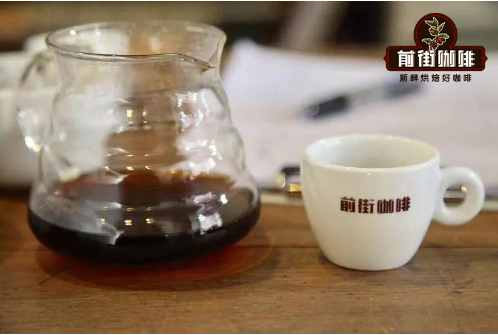What's the difference between Arabica coffee beans and Robusta coffee beans?
Like any other plant, coffee beans need to be very careful and considered when they grow. Arabica and Robusta coffee beans require very different conditions to thrive and bring us the coffee we are used to. When they began to grow, they were all similar to berries, but from there they parted ways and became their own plants-actually with their own personalities.
Arabica
The beans grow in different places above 600 meters above sea level-usually in Latin America. For example, Colombian boutique coffee only produces Arabica coffee beans! Try Amazon Colombian coffee made from 100% Arabica beans here! To produce their own Arabica coffee, growers must pay close attention to pests (obviously, they love coffee as much as we do). Legumes need moisture, fertile soil, shade and sunshine to thrive. Although these conditions are difficult to control, most of the world's coffee beans are produced in Arabica. Since Brazil is the largest producer of all types of coffee, Brazil is thought to produce 5714381000 POUNDS of coffee a year-many of which are Arabica coffee!
Robusta
"elasticity" is probably the best word to describe the Robusta coffee bean itself. It grows at sea level, mainly in Africa, Indonesia and Vietnam. These conditions mean that Robusta beans are less likely to be infested by pests or damaged by bad weather. Apart from all these simple conditions, Robusta plants grow well and grow much faster than Arabica plants. They only seem to need a lot of water to stay hydrated in the hot sun. The coffee beans produced by this process are thicker, smaller and more round than Arabica coffee beans.

How do these beans taste?
Considering the notes used in coffee, it is easy to judge whether to drink Arabica coffee or robusta coffee by it.
Arabica flavor
With a hue of "sugar, fruit and berries", it is natural for Arabica coffee to taste a little sour. Coffee novices often confuse aromas with flavors, but in this case, it's interesting to know that Arabica coffee beans smell like blueberries before roasting. Fortunately, they don't have to be that kind of taste. Arabica varieties are not necessarily blueberry-flavored, but fruit is still easy to stand. Arabica coffee beans are significantly more fruity and softer than robusta coffee beans, and many people seem to like this more than robusta coffee beans.
Robusta flavor
These beans are usually known for their "stronger, more pungent flavor, with a cereal flavor and a pea-nut finish". These beans are not sweet, but a little more bitter (but that's not a bad thing). This pungent flavor is popular in espresso because of how coffee beans affect the thickness of coffee oil and the taste of coffee.
It just tastes bolder if you like, but like any other coffee bean, it's super delicious!
Important Notice :
前街咖啡 FrontStreet Coffee has moved to new addredd:
FrontStreet Coffee Address: 315,Donghua East Road,GuangZhou
Tel:020 38364473
- Prev

Is anaerobic coffee the next big trend of coffee? Introduction of Coffee by anaerobic treatment
Due to the different processing methods of anaerobic coffee, in order to show its rich flavor and bright, fresh coffee bean quality, the taste includes ultra-rich tropical flavor, as well as an interesting sour candy flavor, which echoes the flavor of coffee beans. The process of making anaerobic coffee is by no means easy. With the use of open fermentation
- Next

Tanzania's long history of coffee is Tanzania's boutique coffee produced by small enterprises?
Many European powers with a rich coffee history and culture spanning centuries dominate today's global coffee industry. Other countries, such as Colombia, Ethiopia and the United States, also fall into this category. But Tanzania is usually an unnoticed country. With Kenny, another country famous for its coffee.
Related
- What brand of black coffee is the most authentic and delicious? what are the characteristics of the flavor of the authentic Rose Summer Black Coffee?
- Introduction to the principle and characteristics of the correct use of mocha pot A detailed course of mocha pot brewing coffee is described in five steps.
- Which is better, decaf or regular coffee? how is decaf made?
- How much is a bag of four cat coffee?
- How about four Cat Coffee or Nestle Coffee? why is it a cheap scam?
- Which is better, Yunnan four Cats Coffee or Nestle Coffee? How about cat coffee? is it a fake scam? why is it so cheap?
- How about Cat Coffee? what grade is a hoax? which instant coffee tastes better, four Cat Coffee, Nestle Coffee or G7 coffee?
- Process flow chart of coffee making-Starbucks coffee making process what coffee tastes good at Starbucks
- The top ten best coffee beans in the world Rose summer coffee or Tanzanian coffee tastes good
- Yunnan four cat coffee is good to drink?_four cat coffee is a big brand? four cat blue mountain coffee is fake?

